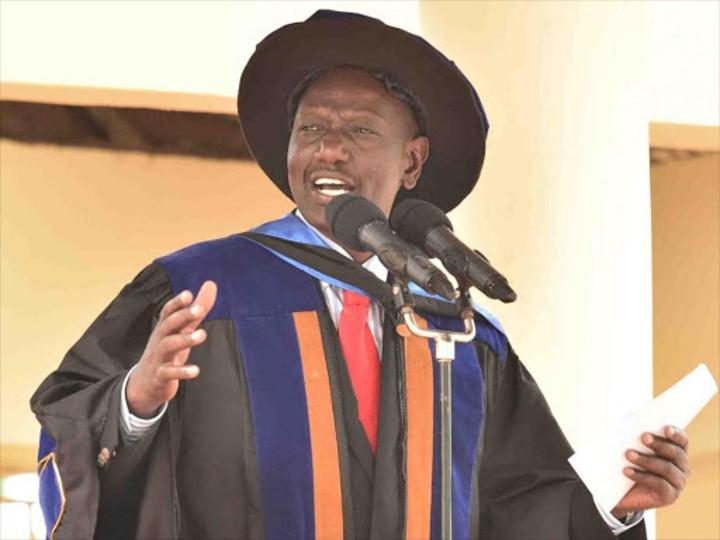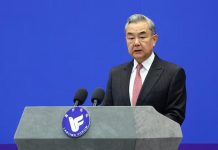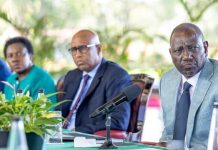Africa-Press – Kenya. Kenya Kwanza presidential candidate William Ruto will on Thursday unveil his Education Charter containing a myriad of proposals aimed at overhauling the sector should he win the presidency.
The changes will run from early childhood development and education (ECDE) to universities.
Among the proposals is the establishment of a national education fund to mobilise grants, bursaries and scholarships from private and public sponsors to cater for non-tuition costs.
Currently, parents meet the cost of transport, meals, uniform and boarding fees under the Free Primary Education (FPE) and the Free Day Secondary Education.
“To this effect, the Kenya Kwanza administration will work towards strengthening day secondary schools to guarantee access to quality education and reduce the cost of education,” the Charter reads in part.
The Deputy President further promises to increase funding for the free basic education programmes and allocate more funds to implement quality education.
Currently, Education gobbles up 25.9 per cent of the Budget, and in the 2022/23 financial year, the sector was allocated Sh544.4 billion, the highest share of the Sh3.31 trillion.
On CBC, Kenya Kwanza appears to have retracted its earlier plans to scrap the system and revert to 8-4-4 and now promises further public engagements with a view to reviewing the curriculum.
“We commit to continue our robust engagement with the public to facilitate the assessment of the current curriculum and education structure towards finding a sustainable solution that will capture the essence of a knowledge-based system,” the education charter reads.
The Competency-Based Curriculum is currently in Grade Six with the pioneer candidates expected to sit the maiden Kenya Primary School Education Assessment (KPSEA) in October and transition to Junior Secondary in January 2023.
On this, Kenya Kwanza proposes to introduce alternative class transition criteria from the current knowledge-based academic progression system.
As is at the moment, KPSEA will account for only 40 per cent of the final score while 60 per cent will come from the classroom-based continuous assessment tests conducted in Grades 4, 5 and 6.
Ruto’s Education Charter also promises to bridge the 116,000 teacher deficit in public schools within two financial years by employing 58,000 teachers annually from the over 300,00 trained but unemployed teachers in the country.
The coalition intends to spend Sh25 billion annually on this venture besides rolling out continued teacher training and recruitment.
“We commit to ensuring that government-initiated in-service training, including Teacher Continuous Professional Development, is undertaken at the government’s expense.”
On higher education, the Kenya Kwanza Charter proposes to establish a public university in every county in tandem with the University Act (2012).
The universities will be made to focus on their comparative advantage in their training.
“For example, the universities in Mombasa should have courses that focus on the blue economy while those in Turkana will have mining and extractive courses.”
To increase access and reduce the cost of university education and implement a 100 per cent transition to higher education institutions, the Kenya Kwanza alliance further proposes to increase the number of technical universities from the current three to eight across the eight region.
The DP also intends to link TVETs to universities to develop a credit transfer framework to support academic progression, increase capitation for both university and TVET and restructure the Higher Education Loans Board (Helb) to offer interest-free loans.
Currently, the government sponsors university education at Sh70,000 per student, Sh 30,000 for TVET students, while students receive loans of between Sh37,000 and Sh60,000 annually. Those in TVETs receive Sh26,000 in loans.
Ruto also proposes the amendment of the Universities Act, 2012, to allow transfer of managements of universities, including hiring from the public service and put in place legislative, policy and budgetary measures to address the current financial crunch in public universities.
Among the other major proposals in the Kenya Kwanza Education Charter is the provision of free sanitary pads for primary and secondary schoolgirls to ensure 100 per cent return-to-school policy for teen mothers.
The DP also proposes to double funding for school feeding from Sh2 million to Sh4 million, build low-cost boarding schools in arid areas, provide grants to county governments for ECDE learners and ensure learners and teachers in insecurity-prone areas are safe.
He also proposes to increase the number of vocational training centres, technical and vocational education and training (TVET) institutions.
“Kenya Kwanza will allocate conditional grants to county governments within its first one year to ensure that in addition to the existing 1,200, we will construct 250 VTCs in wards that currently do not have.”
Further, the DP promises in the Education Charter to fully equip all the existing Tvets in 52 constituencies within the first two years and ensure there is a national polytechnic in every county.
For More News And Analysis About Kenya Follow Africa-Press






